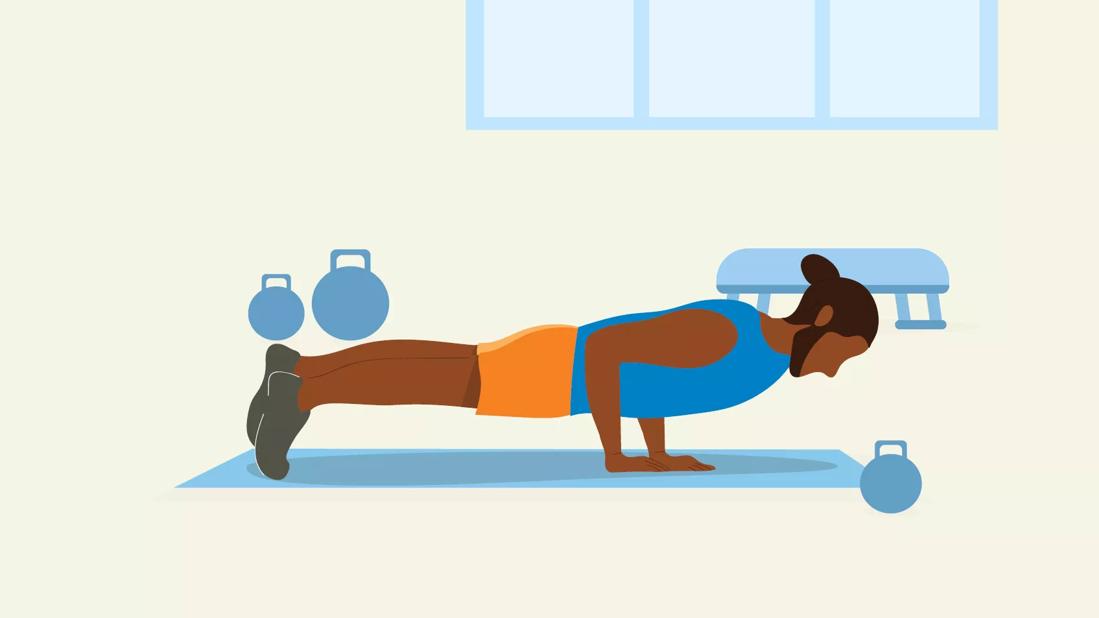Low T can decrease fertility, but there is hope

Image content: This image is available to view online.
View image online (https://assets.clevelandclinic.org/transform/9c5d038c-5132-4a98-9371-a6bb2a5e24cd/Low-Testosterone-1220351209-770x533-1_jpg)
Male exercising on gym mat.
Deciding to start or grow your family is an exciting time. If the test keeps coming back negative, though, you may start to worry — “What if it’s never going to happen for us?”
Advertisement
Cleveland Clinic is a non-profit academic medical center. Advertising on our site helps support our mission. We do not endorse non-Cleveland Clinic products or services. Policy
It’s a question many people face. The National Institutes of Health estimates 9% of men and people assigned male at birth (AMAB) experience fertility issues.
In men and people AMAB, decreased fertility is commonly associated with low testosterone levels, commonly referred to as “low T.” Low T = low sperm count = lower likelihood of reproducing.
The key here, though, is the lower likelihood. Living with low T doesn’t mean you and your partner won’t be able to conceive a child. There are ways to increase your chances.
We talked with endocrinologist Kevin Pantalone, DO, about how low testosterone affects fertility and how you can increase your chances.
In people whose testosterone levels are in the normal range, a single ejaculation can contain more than 15 million sperm per milliliter. If your testosterone levels are low, your sperm count may also be low, which decreases your chances of conception.
Let’s get micro for a minute, though. This is the short story of how sperm is created:
Advertisement
Dr. Pantalone says a lot of testosterone is needed within your testes to create sperm. So, if you’re experiencing low testosterone, you can get stuck at step 2, which means you ultimately create less sperm.
“This is the primary issue we see in men related to low testosterone and infertility. Low testosterone means a lower sperm count. That doesn’t mean you can’t conceive, but it does decrease the chances,” Dr. Pantalone notes.
Additionally, living with low testosterone can impact your sexual function, Dr. Pantalone says. Low libido and erectile dysfunction are common symptoms of low T, which can further lower your odds for conception.
OK, so low T means you need more T, which means you need testosterone therapy, right?
Actually, no. It might sound counterintuitive, but testosterone therapy can actually keep you from producing sperm.
“Testosterone therapy will increase your circulating testosterone in your blood, but it will not increase testosterone in the testicles, which is where it’s needed for sperm production,” Dr. Pantalone explains. “In fact, testosterone therapy can reduce your sperm counter further, so it is not recommended for people who want to start a family.”
Think of it like supply and demand. When you increase your testosterone through patches, pills, injections or creams, your body thinks it has an ample supply of testosterone and so doesn’t produce more in your testicles. That means the levels of testosterone in your testicles — where it matters for sperm production — will remain low.
If hormone therapy won’t increase your sperm count, what will?
There are a lot of myths about male fertility (no, you don’t have to ditch the tighty-whities if that’s your thing). The truth is that taking care of your overall health can be your best bet to increasing your testosterone levels.
Proven strategies to increase testosterone and boost sperm production include:
If you know you have low testosterone, or if you and your partner have been trying to conceive for six months to a year without success, a visit to a fertility specialist should be your next step, Dr. Pantalone says.
A fertility specialist can test you and your partner for any fertility issues and recommend options to increase your chances of starting or growing your family. They can also discuss options like intrauterine insemination (IUI) and in vitro fertilization (IVF) with you. Dr. Pantalone says it’s extremely important both you and your partner are evaluated when undergoing an investigation for causes of infertility.
Advertisement
Living with decreased fertility can be emotionally painful and isolating. People living with fertility issues often report feeling depressed, grief-stricken or inadequate. Supporting your partner, talking with a licensed mental health professional and finding community with others who share your experience can help. Ask your healthcare provider about mental health support, such as therapy and support groups, for people who are experiencing infertility — you’re not alone, and there is hope.
Video content: This video is available to watch online.
View video online (https://www.youtube.com/embed/zCzK4oxhB8U?feature=oembed)
4 Causes of Male Infertility
Advertisement

Delivered every Tuesday!
Sign up for our Health Essentials emails for expert guidance on nutrition, fitness, sleep, skin care and more
It's a letter about the news!
Learn more about our editorial process.
Advertisement
Symptoms are subtle, but could include a reduced libido and mood swings
Vasectomies and masturbation don't lower your testosterone levels
Low testosterone levels can mimic symptoms of depression and cause anxiety over time
Over-the-counter supplements aren’t the answer
No, most hormonal birth control doesn’t affect your future fertility
Various prescription medications and recreational drugs can have an impact
Despite assumptions, there really isn’t a one-to-one connection between the conditions
This safe, low-risk procedure can restore your fertility in as little as three weeks
Type 2 diabetes isn’t inevitable with these dietary changes
Applying a hot or cold compress can help with pain
Pump up your iron intake with foods like tuna, tofu and turkey